Below are a series of updates from the International Relations Committee that may be of interest to you as athletes...
FINA COMMISSION & TECHNICAL COMMITTEE MEETINGS: The following individuals will represent USA Swimming and/or USAS at the upcoming FINA meetings:
Technical Open Water Swimming Committee - October 18th - Steve Munatones
Coaches Commission - October 23-24th - Mark Schubert
Athletes Commission - October 29-30th - Aaron Peirsol
Technical Swimming Committee - November 12-13th - Carol Zaleski & Dale Neuburger
Sports Medicine Committee - December 5-6th - Dr. Jim Miller
FINA Bureau Meeting - January 15-16 - Dale Neuburger
MUTUAL OF OMAHA DUEL IN THE POOL: The 2009 Duel in the Pool will be held on December 19 & 20 in Manchester, England. The venue for the SCM competition is the Manchester Aquatic Centre which hosted the 2002 Commonwealth Games. USA Swimming is sending an A+ team and will be competing against the combined teams of Great Britain, Italy and Germany. German star Paul Biedermann will not be participating due to a prior commitment to compete elsewhere. According to Mike Unger, USA Swimming was intending to compete under the 2010 Swimwear regulations but due to the availability issues this matter remains unresolved at this time. USA Swimming will swim in whatever rules are agreed upon. Our strong preference remains to swim in the new FINA suit rules which are effective in January 2010. The event will be televised in the USA on NBC on Sunday, December 27th from 2-4 pm (ET). More about the 2009 Duel in the Pool at:
http://reachforthewall.com/2009/10/16/suits-and-nations-change-but-usa-vs-europe-on/
ROMA 2009 FINA WORLD CHAMPIONSHIPS RAN AT $14.2 LOSS : According to SwimNews: The Rome 2009 world championships ran at a 9.5 million euro loss, official reports from Italy reveal today. The specific cost to the Italian swimming federation (FIN) and the city of Rome is put at euros 3.6m. The state will pick up the rest of the bill, media reports suggest. http://www.swimnews.com/News/view/7270
FINA WORLD CUP EVENTS BEGIN --The 2009 FINA World Cup series began last Friday in Durban. The meet is the first of five meets for the 2009 circuit, and the only meet in October following the cancellation of the circuit's 6th meet that was to be in Rio de Janeiro, Brazil next weekend. Dates for the 2009 World Cup are:
-October 16+17: Durban, South Africa
-November 6+7: Moscow, Russia
-November 10+11: Stockholm, Sweden
-November 14+15: Berlin, Germany
-November 21+22: Singapore
Further information on the World Cup series can be found on the FINA website at this link:
http://www.fina.org/project/index.php?option=com_content&task=blogcategory&id=107&Itemid=541
SABIR MUHAMMED & PETER MARSHALL IN SOUTH AFRICA: US National Team athletes Sabir Muhammed and Peter Marshall conducted swim clinics in South Africa prior to their competition sessions during the October FINA World Cup events in Durban, South Africa.
ATHLETES ELECTED TO THE EUROPEAN OLYMPIC COMMITTEE--Croatian swimmer Gordan Kozulj was among the 7 individuals elected to the European Olympic Committees (EOC) Athletes' Commission earlier this month in Moscow. The term for the recent elections is 2009-12.
UK ANTI DOPING AGENCY PROPOSES TO RAID 2010 LONDON OLYMPIC VILLAGE -- UK Anti-Doping agency (UKAD) officials want the right to enter athletes’ accommodation at the London Olympics to search for drugs and the equipment used for banned techniques such as blood boosting. Speaking at last week’s UKAD launch, sports minister Gerry Sutcliffe confirmed that his government is seeking permission from the IOC to allow such raids. Similar tactics used at the 2006 Turin Winter Olympics led to the capture and banning of several members of the Austrian skiing team. “We don't want to criminalize athletes, but it would be fair if it was a condition of entry,” Sutcliffe said. UK Sport has handled anti-doping in Britain for the past 20 years, but it also distributes Lottery funding to elite athletes. UKAD – modeled on the Australian and American independent agencies – will be chaired by a former senior police officer, David Kenworthy, with the head of anti-doping at UK Sport, Andy Parkinson, as chief executive.


